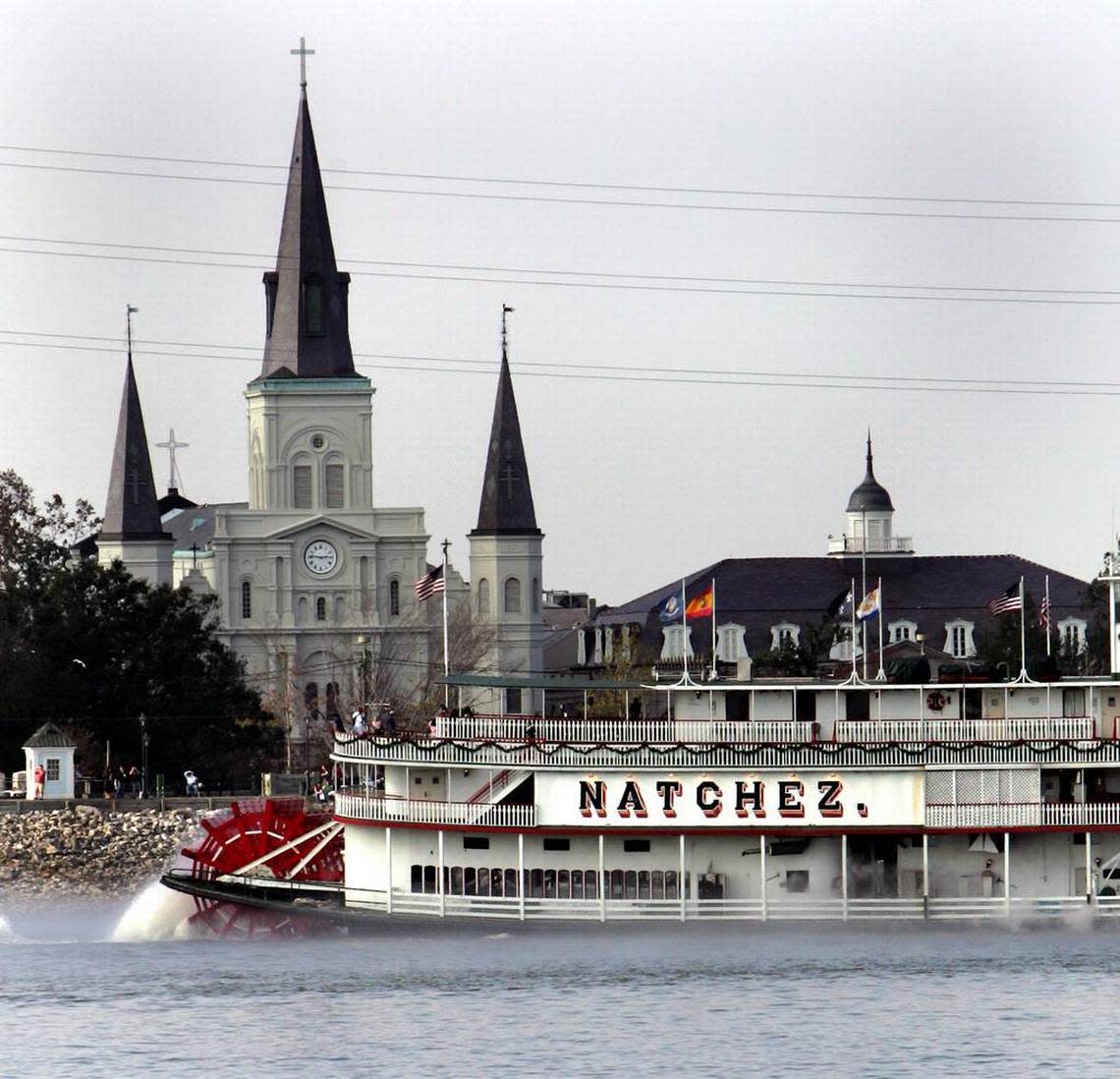Mississippi’s Revolutionary War connection involves river pirates and a New Orleans governor

- Oops!Something went wrong.Please try again later.
In 1775, tensions between American colonists and their British overlords had reached a boiling point, sparking the Revolutionary War. Although not part of the 13 colonies, and far detached from the campaigns in the East, Mississippi has several obscure but direct connections to the conflict.
During the 1770s, Mississippi was under British control and referred to as West Florida. However, only a handful of settlers had ventured into the vast lands between the Mississippi River and the Appalachian Mountains.
These early settlers never anticipated that the war raging in New England would ever affect them. Much like their counterparts in the East, most settlers in the territory found themselves torn between loyalties.
One such figure was James Willing, who was born in Philadelphia but eventually settled in Natchez. Facing bankruptcy and poverty, Willing attempted to rally the diverse settlers in the area to overthrow British rule to no avail.
In 1777, Willing returned to Philadelphia and successfully convinced the Continental Congress to grant him permission to combat British influence along the Mississippi River. Armed with a commission as a Captain in the Continental Navy and a small ship he purchased, the Rattletrap, Willing set sail.
The Rattletrap was a galley, equipped with a small sail, oars, and two small swivel-guns. With a crew of over 100 men, Willing navigated the Mississippi River, seizing property and goods from supposed British Loyalists. While a few of his crew were enlisted as some of the first Continental Marines, many were actually pirates and bandits who took advantage of the situation to plunder indiscriminately.
Interestingly, a significant number of settlers along the river held no allegiance to Britain and were just as detached from the fledgling United States. Upon reaching Natchez, Willing and his armed band intimidated the town into declaring neutrality, although many locals joined their ranks. The crew looted affluent businesses and homes, pillaging goods, slaves, and even farm animals.
The British responded by sending the sloop Rebecca up the river to confront the Rattletrap. Willing’s men managed to surprise the British, capturing the ship near Natchez, renaming it the Morris. The two ships continued their raiding activities, targeting British shipping near New Orleans and the Gulf of Mexico.
Despite his anti-British sentiment, the Spanish governor in New Orleans, Bernardo de Galvez, disapproved of Willing and his pirate crew. Galvez urged Oliver Pollock, the American agent in the city, to petition Congress to disband Willing’s group. However, before any action was taken, the tide of the war shifted dramatically.
Encouraged by American victories in the East, the entry of France into the conflict, and the desire to expand their territorial holdings, Spain joined the war in 1779. Galvez promptly led an expedition toward Baton Rouge, capturing multiple forts before seizing the city. His forces then proceeded up the Mississippi River toward Natchez.
Arriving at British Fort Panmure, Galvez demanded its surrender. Surprisingly, the British garrison acquiesced, ceding control of the entire lower Mississippi River to the Spanish. Galvez and his men continued their Gulf Coast Campaign, capturing the Mississippi Coast from the British as they headed toward Pensacola.
With that, Mississippi shifted from British to Spanish control after a brief campaign with minimal casualties. Subsequently, all land east of the Mississippi River fell under American control. While the Mississippi Gulf Coast now belonged to Spain, internal issues and pressure from the United States would later undermine Spanish authority in the region.
Following the British defeat, thousands of loyalists from the East sought refuge in Louisiana and Mississippi, hoping to escape persecution from their former neighbors. American veterans also settled in the state, establishing new communities and contributing to its growth.
Grave-sites for many of these Revolutionary War era veterans and figures, from both sides, are scattered across Mississippi today. Many of their descendants still reside in the state.
Beyond American independence and the annexation of what is now Mississippi, the influence of the Revolutionary War influenced the state’s culture. For instance, Greenville was named in honor of General Nathanael Greene, while Kosciusko pays tribute to Polish-born American General Tadeusz Kosciuszko.
While the American Revolution may have only played a minor role in Mississippi’s history, it served as a crucial foundation for the state’s formation. Subsequent events, such as the War of 1812 and the American Civil War, would overshadow this early history.

